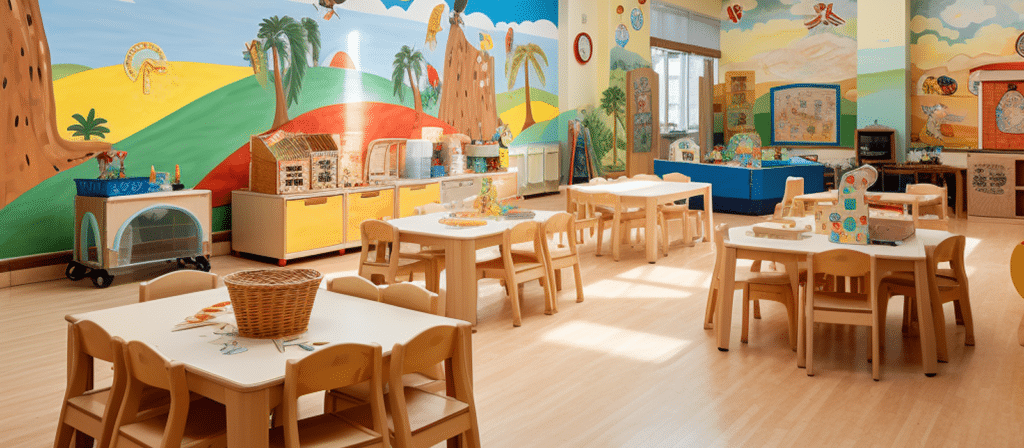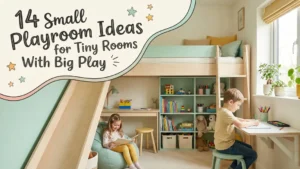Ever wondered how to create an inclusive and supportive environment in daycare settings for children with special needs? Delve into the world of adapted daycare furniture and explore how these modifications can make a significant impact. Discover the ways in which specialized furniture can enhance the experience for children with unique requirements.
Adapting Daycare Furniture for Children with Special Needs involves incorporating customized elements that cater to diverse physical, sensory, and cognitive needs. These adaptations aim to provide a comfortable and accommodating space that fosters independence and promotes a sense of belonging.
Why is it important to adapt daycare furniture for children with special needs?
Children with special needs require additional support and accommodations to fully participate in their day-to-day activities. This includes providing them with furniture that is specifically designed to meet their unique needs. By adapting daycare furniture, we can create an inclusive environment where children of all abilities can thrive and develop to their full potential.
Adapting daycare furniture goes beyond just making physical adjustments; it is about creating an environment that fosters independence, promotes social interaction, and enhances the overall learning experience for children with special needs. By providing the right furniture, we can ensure that every child feels included, valued, and supported in their daycare setting.
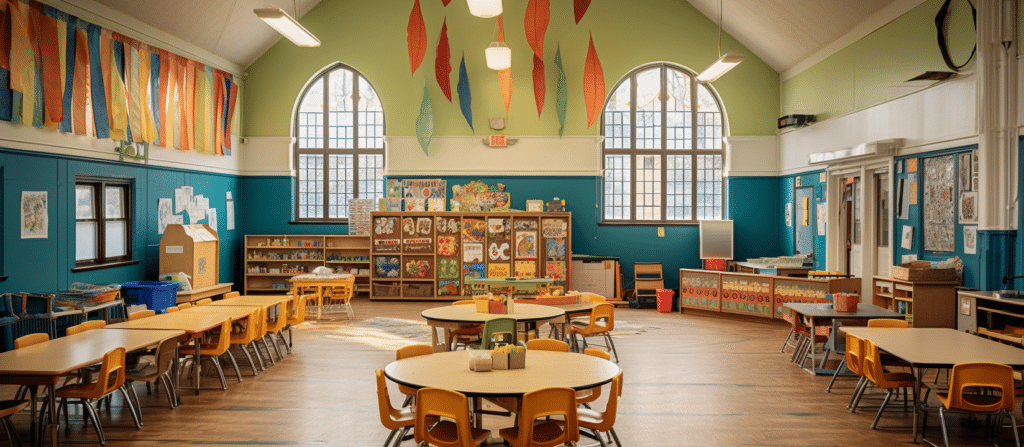
How can daycare centers adapt their furniture to accommodate children with special needs?
Daycare centers play a crucial role in the development of children, including those with special needs. By making simple adjustments and modifications to the furniture, we can create an inclusive environment where all children can participate and feel included.
One important aspect to consider is the height of the furniture. Children with physical disabilities may require furniture that is lower or higher than standard sizes. Adjustable tables and chairs can be a great solution, allowing caregivers to easily adapt the furniture to meet the individual needs of each child. By providing furniture that can be adjusted to different heights, we ensure that children with special needs can comfortably participate in activities with their peers.
Another consideration is the design of the furniture. Children with sensory processing disorders may benefit from furniture with soft, cushioned surfaces, as it can help reduce sensory overload. Adding sensory elements such as textured fabrics or visual stimuli can also enhance their learning experience. By incorporating these features into daycare furniture, we create a welcoming environment for children with special needs.
What are some specific adaptations that can be made to daycare furniture?
There are several specific adaptations that can be made to daycare furniture to better accommodate children with special needs. Let’s explore a few examples:
- Sensory-friendly seating: Sensory-friendly seating options, such as bean bag chairs or rocking chairs, can provide a calming and soothing experience for children with sensory processing disorders. These chairs offer a comfortable and safe space where children can relax and regulate their sensory input.
- Supportive seating: Some children may require additional support to maintain proper posture. In such cases, seating with built-in backrests and armrests can provide the necessary support and promote better alignment. Adjustable seating with lumbar support can also be beneficial for children with back or spinal issues.
- Accessible tables: Children with mobility limitations may require tables that are wheelchair accessible. Ensuring that tables have ample legroom and are at an appropriate height can make a significant difference in their ability to participate in various activities. Additionally, tables with rounded edges can help prevent injuries and provide a safer environment.
- Storage solutions: It’s important to consider storage solutions that are easily accessible for all children, including those with physical disabilities. Low shelves or cubbies that can be reached from a seated position, as well as labeled bins or drawers, can help children with special needs easily find and organize their belongings.
These are just a few examples of how daycare furniture can be adapted to meet the needs of children with special needs. By implementing these modifications, daycare centers can create a more inclusive and supportive environment for all children.
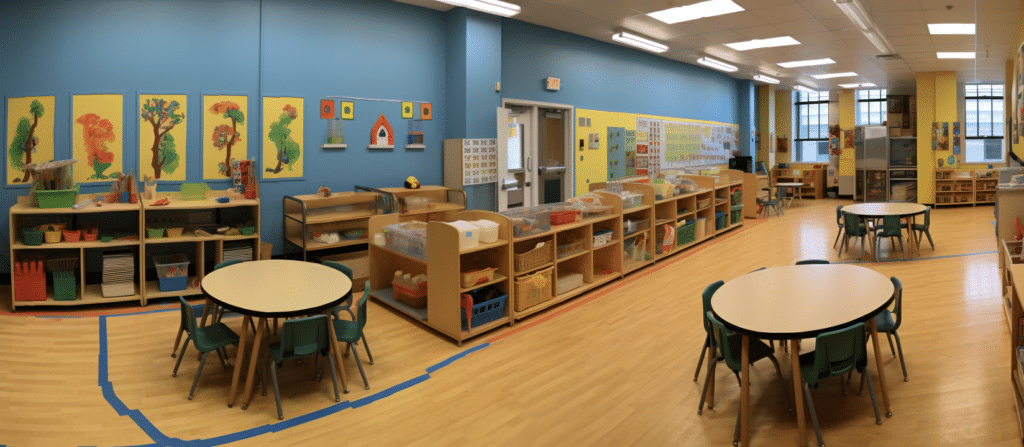
What are the benefits of adapting daycare furniture for children with special needs?
The benefits of adapting daycare furniture for children with special needs are far-reaching. By creating an inclusive environment, we not only support the development and growth of children with special needs but also foster a sense of belonging and acceptance among all children.
When children with special needs have access to appropriate furniture, they can actively participate in activities, engage with their peers, and develop their cognitive and social skills. By removing barriers and providing furniture tailored to their needs, we empower children with special needs to explore their abilities and reach their full potential.
Furthermore, adapting daycare furniture for children with special needs sends a powerful message of inclusion and acceptance. It shows that every child is valued and deserves equal opportunities to learn and grow. By embracing diversity and adapting our environments, we create a more inclusive society for everyone.
How can daycare centers implement these adaptations effectively?
- Collaboration with Experts: Seek guidance from occupational therapists, special education teachers, and other professionals who specialize in working with children with special needs. They can provide valuable insights and recommendations on how to adapt daycare furniture to meet the diverse needs of the children in your care.
- Training and Awareness: Ensure that all staff members receive proper training and are aware of the adaptations made to the daycare furniture. This will enable them to provide the necessary support and assistance to children with special needs, fostering an inclusive and supportive environment.
- Regular Evaluation and Feedback: Continuously assess the effectiveness of the adapted furniture and seek feedback from both children and their parents. This will help identify any areas for improvement and ensure that the adaptations are meeting the intended goals.
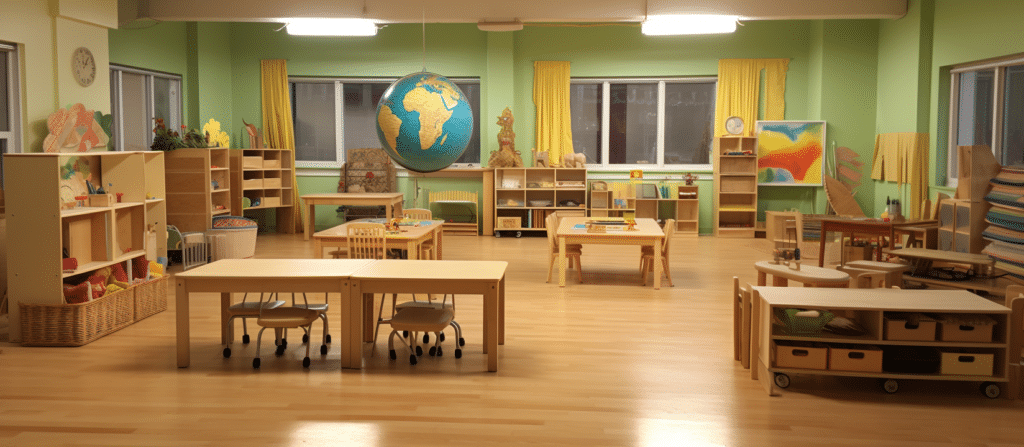
Conclusion
In conclusion, adapting daycare furniture for children with special needs is essential in creating inclusive environments where all children can thrive. By considering factors such as height, design, and specific adaptations, daycare centers can provide a safe and comfortable space for children with special needs to learn and interact with their peers. The benefits of adapting daycare furniture go beyond physical comfort; they promote inclusion, acceptance, and the overall well-being of all children.

